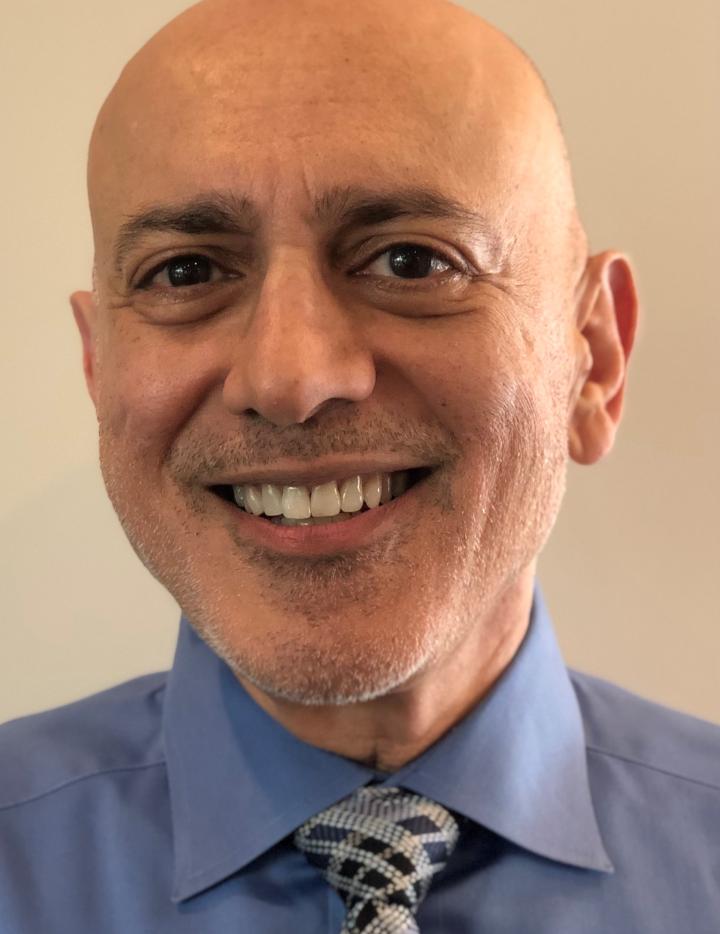
CAPhO Hybrid Conference 2024
Program
Click here to download the CAPhO 2024 Abstract Book.
Click here to download the Program at a Glance.
The Conference program will feature a diverse slate of plenary concurrent, and round table sessions to engage and inform participants of the advances in oncology pharmacy. New this year is the Oral Chemotherapy Management (OCM) Workshop taking place on Thursday, April 11.
In addition to leading-edge education, the program will include two opportunities to interact with CAPhO’s leadership during CAPhO’s Annual General and Town Hall Breakfast meetings – your chance to discuss relevant questions affecting the association. And, as always, there will be a number of sponsored symposia taking place as well as networking events with the Welcome Reception on Friday evening and the CAPhO Dinner on Saturday evening.
Click here for a sneak preview of the Conference’s Opening Plenary featuring Françoise Mathieu's presentation, "The Edge of Compassion: Staying Well While Working in Oncology". Information on the rest of the program (other plenaries, concurrent sessions, round tables) will be available in October.
The program will be accredited by the Canadian Council on Continuing Education in Pharmacy (CCCEP).
Monday
April 8, 2024
This presentation will explore the comprehensive landscape of biosimilar biologics in oncology therapy and adopting them in a hospital setting. We'll delve into understanding the distinctions between reference and biosimilar biologics, Health Canada's approval process, and the pivotal role biosimilars play in fostering a sustainable healthcare system. Moreover, we'll discuss vital factors for evaluating biosimilars in hospital settings, such as cost-saving potential, supply chain considerations, and strategies for seamless implementation. Additionally, we'll highlight actionable strategies to promote biosimilar adoption within hospitals, emphasizing stakeholder engagement and pharmacist empowerment. Practical examples will offer insights into navigating challenges and achieving successful integration.
Learning Objectives:
- Describe the differences between reference biologics and biosimilar biologics
- Describe the process by which biosimilar biologics are approved and regulated by Health Canada
- Describe operational changes required for a Hospital Pharmacy to incorporate biosimilars into their formulary system and policies
- Define factors for considering adoption of biosimilars in Oncology
- Learn from practical examples, expected challenges and strategies to achieve a successful implementation
Presented by:

Flay Charbonneau
Manager, Odette Cancer Pharmacy, Sunnybrook Health Sciences Centre, Toronto, ON.

Jonathan Shloush
Process Coordinator- Systemic Therapy, Odette Cancer Pharmacy, Sunnybrook Health Sciences Centre, Toronto, ON.
This 60-minute pre-recorded video will be divided into two parts. In part one, Melissa Lo from Princess Margaret Cancer Centre in Toronto, ON will discuss the current and future role of immunotherapies in the frontline setting for adults with B-ALL. Part two will have Phillippe Bouchard, from Hôpital Maisonneuve-Rosemont, Montreal, QC discuss the importance of pharmacy within a multi-disciplinary approach to safely prepare and administer blinatumomab solution for continuous IV infusion.
The pharmacist has an important role to play as a member of the multidisciplinary team caring for patients with HR+HER2– breast cancer. Pharmacists have specific expertise that can improve clinic efficiency and patient care.
Join us in this educational session as we outline the specific aspects of the pharmacist’s work with this patient population.
Learning Objectives:
- Recognize the day-to-day clinical pharmacy activities associated with an advanced HR+HER2– breast cancer clinic
- Describe patient-level recommendations required for advanced HR+HER2– breast cancer patients being treated with CDK4/6 inhibitors
- Apply to practice specific steps in initiating or improving pharmacy services in such a setting
Presented by:
Christine Peragine PhD, PharmD, BScPhm, RPh
Pharmacist Lead, Oral Anticancer Medication Program
Sunnybrook Odette Cancer Centre
Toronto, Ontario
Sandeep Sehdev MD, FRCP
Ottawa Hospital Cancer Centre
Ottawa, Ontario
Thursday
April 11, 2024
This interactive symposium will feature a panel of experts providing guidance and real-world perspectives exploring the emerging role for T-cell redirecting therapies, particularly bispecifics, in the management of relapsed/refractory Multiple Myeloma within the Canadian clinical setting.
Learning Objectives:
- Establish the emerging role for T-cell redirecting therapies in the management of relapsed/refractory Multiple Myeloma (RRMM) in Canada
- Identify key safety management considerations for bispecific antibodies for Multiple Myeloma to optimize the patient journey and inform appropriate patient selection
- Consider the role of the pharmacist to support patient management throughout the delivery of bispecific antibodies for Multiple Myeloma within the Canadian setting
Sponsored by Janssen
The role of pharmacists continues to evolve with the advent of neoadjuvant and adjuvant immunotherapies for the treatment of early-stage cancer. These advances come with an increased need for new technology to support delivery of care to patients and optimize healthcare system capacity.
This program will provide an overview of recent approvals of neoadjuvant and adjuvant immunotherapy and the growing role of pharmacists as key members of the multidisciplinary team. Speakers will discuss the impact of immunotherapy on the healthcare system and evaluate the use of new tools and best practices that are applicable across early and metastatic stages of cancer.
Learning Objectives:
- Review and evaluate the impact of recent adjuvant immunotherapy indications on both patient outcomes and healthcare system capacity
- Explain how oncology pharmacists can contribute to optimizing healthcare system capacity for recent immunotherapy indications
- Introduce new tools to support pharmacists when providing care to patients receiving treatment with immunotherapy
Sponsored by Merck
Friday
April 12, 2024
This symposium aims to provide an overview of hot topics in Prostate cancer, Breast cancer, and Cancer-associated thrombosis.
Learning Objectives:
- Review the changing treatment landscape in metastatic castration resistant prostate cancer (mCRPC)
- Describe the management of key drug-drug interactions with CDK4/6i in breast cancer
- Identify and address clinically relevant drug-drug interactions in cancer-associated thrombosis (CAT)
Sponsored by Pfizer Canada
This program is intended to educate healthcare professionals on important advances in metastatic breast cancer (mBC) research, and topics related to treatment selection, patient monitoring, and adverse event management. The session will focus on integrating new therapeutic options for patients with HR-positive (HR+) mBC into clinical practice.
Learning Objectives:
- Understand the factors that influence treatment planning and sequencing of new treatment options along the HR+, HER2- and HER2-low patient journeys
- Anticipate potential toxicities associated with AKT-pathway targeted agents and antibody-drug conjugate therapies used for the treatment of HR+, HER2- or HER2-low mBC
- Integrate key teaching points into patient education, focused on patient/caregiver recognition of toxicities and recommended action steps
Sponsored by AstraZeneca and Daiichi Sankyo
Through this presentation, pharmacists will explore the current treatment landscape for patients with relapsed/refractory (R/R) large B cell lymphoma (LBCL) in Canada, their role in managing immune-mediated adverse events with bispecific antibodies, and the importance of pharmacists in the successful adoption of novel cancer medications in academic and community hospital settings.
The Leukemia & Lymphoma Society of Canada will also contribute to this presentation by outlining the role oncology pharmacists can take to enable access to novel cancer treatments.
Learning Objectives:
- Review the evolving R/R LBCL treatment landscape
- Describe management of immune-mediated adverse events with bispecific antibodies (e.g., cytokine release syndrome and immune effector cell–associated neurotoxicity syndrome)
- Discuss how pharmacists can utilize their clinical expertise to ensure timely and safe adoption of novel cancer medications in the academic and community hospital settings
- Explain the role oncology pharmacists can plan in enabling access to novel cancer treatments
Sponsored by AbbVie Corporation
In early breast cancer (eBC), HR+ and HER2- treatments are evolving with maturing data in the adjuvant setting. Understanding the risk/benefits of CDK4/6 inhibitors use in eBC and establishing clear expectations for the patient is key toward achieving optimal care and adherence.
A multidisciplinary panel, consisting of a medical oncologist and pharmacists, will discuss clinical evidence and case-based scenarios. In their discussion, they will highlight the importance of a collaborative approach toward counselling, education, and management of the patient on adjuvant CDK4/6 inhibitor treatment for improved patient outcomes.
Learning Objectives:
- Understand the factors that may be prognostic of a higher risk of cancer recurrence in patients with early breast cancer (eBC) and how this impacts management approaches.
- Review the treatment landscape of adjuvant CDK4/6 inhibitors in eBC and current approaches to patient counselling.
- Discuss multidisciplinary team strategies to optimize therapy and patient experience with CDK4/6 inhibitors in the adjuvant setting for eBC, including ways to counsel, educate and manage adverse events (AEs).
- Discuss follow up pathways to assist with AE management and explore the role of dose reduction to assist with adherence to treatment.
Sponsored by Lilly
This symposium will provide pharmacists a practical update on new advances in indolent lymphomas with a focus on how to optimize their role in patient management.
Learning Objectives:
- Review of new therapies in various indolent lymphomas including the safety profiles and practical administration
- Discuss the role of the pharmacist in assessing and monitoring patients for potential interactions and risk of AEs, and applying various management strategies
- Share ideas on effective approaches to educating patients and caregivers on the risks and benefits of treatment options and adherence counselling for oral therapies
Sponsored by BeiGene
Join us for an interactive discussion on the Lines of Progress in Metastatic Triple-Negative Breast Cancer: Case-Based Applications Through a Pharmacist’s Perspective. Tailored to advancing insights into side effect management through clinical cases from an academic and community setting, the goal is to enhance patient outcomes through multi-disciplinary efforts to individualize care for those confronting metastatic TNBC.
Learning Objectives:
- Gain insights into integrating new therapies for metastatic TNBC into practice
- Recognize and implement approaches to prevent or minimize toxicities to optimize a patient's quality of life
- Translate these approaches to customized plans as part of a multi-disciplinary team to extend survival
Sponsored by Gilead
Saturday
April 13, 2024
This symposium aims to provide a comprehensive understanding of
- The evolving landscape of multiple myeloma, with a specific focus on BCMA-targeted therapies treatment.
- Their associated adverse events
- The role of pharmacists in patient management
Learning Objectives:
- Describe the mechanisms of action of bispecific antibodies (bsAbs) targeting B-cell maturation antigen (BCMA) in the treatment of relapsed and/or refractory multiple myeloma (RRMM)
- Compare the outcomes of BCMA-targeted therapies with standard treatment modalities for multiple myeloma
- Develop strategies for monitoring and multidisciplinary management of adverse events related to BCMA-targeted agents in clinical practice
Presentation Summary:
Many who choose to work in the field of oncology pharmacy have described it as both deeply rewarding and, at times, emotionally challenging. This erosion can be further magnified by limited resources, overwork and “red tape.” However, it is possible to learn how to remain present and compassionate. This keynote will explore tools to rapidly return to a healthy baseline while working in challenging work settings such as oncology.
Participants will learn:
1. Why it’s time to stop using the term “compassion fatigue”
2. Dual awareness to remain calm and fully engaged during a stressful event
3. Strategies for daily Resetting
Presentation Summary:
The field of oncology is in need of a fundamental re-calibration, shifting towards a more patient-centered and equitable approach to cancer care, and pharmacists are poised to play a critical role in this movement. The Common Sense in Oncology (CSO) movement seeks to address this imperative by advocating for a patient-centric paradigm that prioritizes improved patient-clinician communication, accessible and affordable treatments, and outcomes that enhance both survival and quality of life. While some oncology therapies provide large benefits, many of them do not help patients to live longer or better lives. It is important to identify treatments which do not improve survival or quality of life because they have clinical side-effects, cause financial burden to patients, families, and health systems, and lead to lost time for patients spent in the cancer center rather than with friends and family. This session will review the need for a patient-centered approach to care, describe some of the systemic factors that have contributed to the current problems, and review ways in which pharmacists can play a major role in transforming cancer care.
Learning Objectives:
At the conclusion of this presentation, participants will be able to:
1. Explain the need for a patient-centered approach in cancer care and research
2. Summarize the rationale, mission, vision, and guiding principles of the Common Sense Oncology (CSO) movement
3. Discuss ways pharmacists can engage with and contribute to the CSO movement
Presentation Summary:
In 2019, updated international exercise guidelines for people living with and beyond cancer were published. With this there are increasing calls to implement exercise programming as part of standard of cancer care. However, to support the call for implementation there is interest in understanding the effect of exercise on clinical outcomes, such as survival or treatment completion rate, as well as evidence of savings to the health care system. This talk will highlight the available evidence for effect of exercise on clinical outcomes, and discuss implementation efforts nationally and internationally, including how the oncology pharmacy team can play a role.
Learning Objectives:
1. Recognize the current recommendations for exercise manage common side effects of cancer treatment
2. Describe the research literature on the impact of exercise on survival outcomes, treatment completion rate, healthcare utilization and other clinical outcomes.
3. Explain the current approach of supportive care in Canada to help to address these clinical outcomes
4. Examine the potential of the pharmacy in oncology team members to assist with connecting patients to supportive care resources in their area
Presentation Summary:
The interactive patient communication portal project is a pilot project to incorporate routinely assessed patient reported outcomes to proactively identify and manage toxicity for oral anti-cancer therapies. We used the Quebec telehomecare platform already deployed across the province to create symptom tracking algorithms and have personalized this monitoring based on prescribed therapies and the cancer associated with them. More than 200 patients used this platform during the year of the pilot project and this project highlighted the very high relevance of offering this type of monitoring to this population. The result of this pilot project will be presented during this conference.
Learning Objectives:
1. Describe the interactive patient communication portal project
2. Recognize the type of patients who could benefit from such approach
3. List the key steps in establishing and implementing this platform and describe some of the possible challenges
4. Discuss potential future direction for this kind of follow-up strategy
Presentation Summary:
This presentation is centered around the concept of standardizing Oncology Preparation Processes using a structured problem-solving methodology to achieve optimal excellence. Join Aimee through her journey as she explores the why, what, and how of standardization while uncovering key steps to streamline and elevate workflow and efficiency.
Learning Objectives:
At the conclusion of this presentation, participants will be able to:
1. List the benefits of standardization in Oncology preparation processes, allowing them to make informed decisions when considering standardization
2. Identify tools available to assist with process improvement and change management, fostering a proactive approach to continuous improvement
3. Analyze and evaluate oncology preparation data/reports, empowering them to make data-driven decisions
4. Plan and implement effective change within the workplace, enabling them to lead initiatives that have a positive impact on the organization
Presentation Summary:
With the rise of oral anti-cancer drugs (OACDs) the roles and responsibilities of community pharmacists and specialty oncology pharmacies are growing. OACDs are often prescribed as part of more complex regimens and in populations with a myriad of comorbidities and concurrent drug therapies. Learn about the challenges faced by community pharmacists, the role of specialty pharmacies and the importance of collaboration between health care providers, to optimize safety of OACDs. Explore the barriers faced when trying to engage community pharmacies and come prepared to discuss strategies to narrow the care gap and manage this complex population.
Learning Objectives:
1. Recognize the challenges faced by community pharmacists in triaging oral anti-cancer therapies.
2. Using case-based examples:
a) Describe the role of specialty oncology pharmacies in bridging the gap between hospital and community cancer care to optimize safety of oral anti-cancer drugs.
b) Illustrate the need for collaboration and engagement between primary prescribers, pharmacists and patients to provide integrated holistic patient-centered care.
3. Discuss opportunities and barriers in engaging the patient's community pharmacy by reviewing the results of the Community Pharmacy Engagement Initiative (CPEI).
4. Propose strategies to narrow the gap created by having drugs dispensed in multiple pharmacies.
Session Description:
Rapidly progressive, pediatric, Burkitt Lymphoma is an endemic health concern in many sub-Saharan African countries. Optimal outcomes are complicated by many of the challenges Canadians might expect such as a lack of modern diagnostics and the limited treatment options afforded by the WHO essential medicines list. However, additional difficulties such as poor recognition of a malignant process leading to late presentation, limitations in supportive care measures, malnutrition, practicality of a parent’s extended stay, and various chemotherapy safety concerns also exist.
Session Learning Outcomes:
By the end of this session, the attendee will be able to:
1. Appreciate the various types of resource limitations that exist in a remote hospital within a low or low-middle income country.
2. Describe the impact to care for cancer patients when resources are limited
3. Explain opportunities to improve chemotherapy safety for patients, family, and staff in under-resourced hospitals
4. Critically reflect on the privileges in our practice and health care system that we may have under-recognized in the past
Presentation Summary:
Cardio-oncology is a subspecialty of care dedicated to the prevention, identification and treatment of cardiovascular complications in patients undergoing cancer therapy and long-term cancer survivors. In this session, using a case-based approach, we will walk through common scenarios of cancer therapies that may cause cardiovascular toxicity (CVT) and strategies to prevent and treat these, with the goal of preventing cancer treatment interruptions.
Learning Objectives:
At the conclusion of this activity, participants will be able to discuss:
1. the use of OAC with BTK inhibitor therapy
2. the role of cardio-protection prior to and during anthracycline therapy
3. the role of cardio-protection in HER-2 therapy
Presentation Summary:
This presentation examines how pharmacy professionals are already on the front line of the climate crisis, and how climate-conscious oncology pharmacists can significantly improve patient care. Participants will gain insights into the impact of climate change on health, particularly in the context of cancer and chemotherapy . The session will also discuss practical climate mitigation strategies, including examples relevant to deprescribing. Additionally, this session will also equips attendees with skills for the basics of climate adaptation within oncology pharmacy, focusing on emergency preparedness and clinical medication management during heat waves. This presentation will also provide next steps for pharmacy professionals interested in learning more, and conclude with a summary of how climate change affects supply chain considerations within the oncology pharmacy landscape.
Learning Objectives:
1. Develop an understanding of how climate change impacts health and cancer, specifically exploring the direct and indirect effects on patients receiving oncology medications
2. Explain how the awareness of climate change hazards can influence practical clinical decision making within oncology pharmacy, particularly related to climate adaptation
3. Explain how pharmacy professionals are at the forefront of the climate crisis, and how they can reduce emissions within their own day to day practice
Presentation Summary:
Artificial Intelligence (AI) is revolutionizing oncology pharmacy by enhancing precision medicine, optimizing treatment plans, and improving patient outcomes. By analyzing vast datasets, AI algorithms can identify patterns and predict drug responses, enabling personalized therapy. It assists in drug discovery by rapidly screening compounds and predicting their effectiveness against specific cancer types. Moreover, AI streamlines workflow by automating medication management and monitoring, reducing errors, and ensuring compliance. For oncology pharmacists, AI offers tools for better decision-making, supports clinical research, and fosters a deeper understanding of cancer pharmacotherapy. This technological advancement promises a future where cancer treatment is more targeted, effective, and patient-centric.
Learning Objectives:
At the end of this presentation, attendees will be able to:
1. Understand the Fundamentals of AI in Oncology
2. Demonstrate the Application of AI in Personalized Medicine
3. Describe AI-Driven Drug Discovery and Development
4. Assess Ethical Considerations and Patient Safety
5. Propose how to navigate Navigating the Future of Oncology Pharmacy with AI or to propose a strategy to navigate
Presentation Summary:
Pharmacies across BC were required by the College of Pharmacists of BC (CPBC) to implement the National Association of Pharmacy Regulatory Authorities (NAPRA) Model Standards for Pharmacy Compounding of Hazardous and Non-Hazardous Sterile Preparations by July 1, 2022. The new standards encompass all aspects of sterile compounding and represented a significant change to pharmacy operations. New measures included annual staff competency assessments, enhanced garbing and personal protective equipment, air monitoring, surface cleaning, equipment testing, end product testing, product handling, storage, labeling, record keeping, and auditing. The implementation of the IV workflow solution addressed many aspects to ensure compliance with the standards and ultimately sterile products for safe patient care and reduced exposure to hazardous drugs for health care professionals. An overview of the IV workflow solution components, implementation plan, activation and ongoing sustainment activities will be discussed.
Learning Objectives:
By the end of this session, participants will be able to:
1. Outline the specific components of an IV workflow solution and the corresponding benefits to pharmacy operations.
2. Assess the implementation timeline and activation processes.
3. Demonstrate an understanding of ongoing sustainment activities and lessons learned during implementation.
Sunday
April 14, 2024
Join keynote speakers Scott Edwards and Michael LeBlanc in "Leveraging Technology for Advanced Oncology Care." Explore the tech-driven evolution in oncology pharmacy through a website/app and discover ways to enhance remote patient care. Also uncover two exciting APP initiatives: The ABC Program and the prestigious HOPE Awards. Gain insights into ABC program and how it’s evolved since 2021, and hear from 2024 HOPE Award winners about their ground-breaking projects that are driving positive change in oncology pharmacy. Don't miss this exciting session highlighting the future of patient care and innovation.
2024 HOPE Award Winners to be announced.
Sponsored by Apotex-Apobiologix
Presentation summary:
We will engage in an Interactive discussion around caring for LGBTQIA+ cancer patients from a trauma informed care perspective. We will touch on cultural humility for our richly heterogeneous, and intersectional patient community that can help empower clinicians to use appropriate language. There will be an emphasis on cancer risks and disparities related to sexual orientation and gender identity minority groups. Additionally, we will focus on clinical implications and blind spots for persons receiving gender affirming care from cancer screening, diagnosis, to treatment.
Learning Objectives:
1. Define the terms related to the LGBTQIA+ community, with a particular emphasis on those who are transgender and gender diverse.
2. Describe health disparities that disproportionally affect members of the LGBTQIA+ community
3. Recall unique cancer care and screening challenges for transgender and gender diverse persons
4. Apply principles of trauma informed care when caring for LGBTQIA+ patients.
Presentation Summary:
This plenary will address disparities in care for First Nations, Métis, and Inuit and ways that oncology pharmacy professionals can help bridge the gap to provide patient centred care to this population. Real life experiences within the cancer care system in Canada will be discussed, including what works, challenges, what can be improved, and what strategies are currently underway to address Indigenous cultural safety within cancer care across Canada.
Learning Objectives:
1. Describe the differences in terminology used to describe and differentiate Indigenous Peoples in Canada.
2. Summarize the determinants of Indigenous Peoples’ health in Canada and describe their relation to cancer among Indigenous Peoples.
3. Examine real life experiences of Indigenous Peoples in the cancer care system in Canada.
4. List strategies for pharmacy professionals to improve the cancer care experience for Indigenous Peoples in Canada.
Asparaginase containing regimens continue to be the mainstay in Acute Lymphoblastic Leukemia (ALL), however, supply issues continue to plague the hospital system. To address the issue with the supply chain, 2 new formulations have entered into the marketplace recently. Calaspargase pegol and crisantaspase recombinant will now be an option in addition to pegaspargase. The new addition presents options as well as challenges to implementing it in institutions. This round table will provide opportunities for various centres to discuss potential challenges and solutions to incorporating the new formulations.
Enhancing Cancer care for all Canadians begins with research, innovation, and technology. How does your Pharmacy education and expertise play a pivotal role in enhancing Oncology Informatics?
At this session, participants will discuss strategies to help prevent and treat infusion-related reactions occurring with the use of some common cancer drugs. Participants will also discuss the role of desensitization protocols used in practice.
During this round table session, participants will discuss how pharmacy professionals can help patients maintain quality of life after cancer treatment. We will review how we can take an active role in managing post-treatment complications related to infectious disease risk, secondary cancers, bone health, cardiovascular health, mental health, as well as reproductive and sexual health.
My Round Table Discussion will focus on the pressure placed upon pharmacy professionals as our scope of practice expands as well as the demands of the public, how we tend to not see the stress we are experiencing and the means in which we can combat this pressure/stress. I will lead discussions on the importance of work/life balance and ways I've learned to cope
Shut down the post-grad scaries! As new practitioners, Jacqueline and Meagan will share some experiences that brought them to and kept them in their current roles. Topics for discussion include the diverse opportunities for pharmacists within hematology/oncology, networking for success and how to make the most of hematology/oncology-based learning opportunities.
Description:
Participants will engage in conversation about the evolution of pharmacy technicians as leaders. Key points for discussion include identifying opportunities for pharmacy technicians and recognizing the importance of leadership qualities, such as communication and adaptability. Join in on the conversation with Aimee as she leads the group into motivational strategies like self-assessment and recognizing others achievements. This roundtable is sure to provide insights into cultivating leadership skills and maintaining motivation while improving team dynamics and patient care.
Learning Objectives:
At the conclusion of this activity, participants will be able to:
1. Identify a variety of pharmacy technician roles, equipping them to make informed decisions on a preferred career path
2. Assess job satisfaction by identifying individual and collective needs, ultimately empowering them to cultivate a positive environment
3. Demonstrate work ethic aligned with individual goals, allowing them to take their career to the next level
cpKPIs are currently being developed for use in oncology pharmacy to support quality clinical practice. In this round table, we will be discussing the implementation of KPIs and the barriers and challenges we may face in our centres.
Monday
April 22, 2024
Learning Objectives:
- Describe the format and learning objectives of the CAPhO24 Oral Chemotherapy Management (OCM) Workshop
- Highlight strategies discussed for managing toxicities and drug interactions associated with oral anti-cancer agents
- Review the role of the pharmacist in caring for patients who are receiving oral anti-cancer agents
- Share key learnings from the OCM Workshop










































